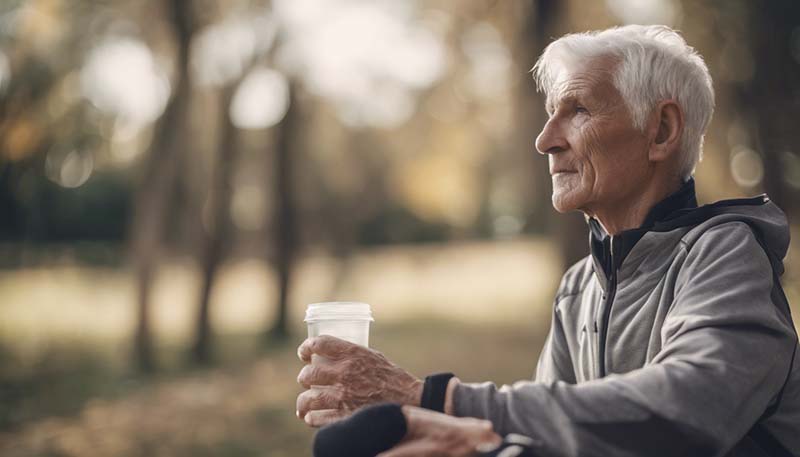Nutritional Considerations for Geriatric Athletes
2024-06-04
Nutritional Considerations for Geriatric Athletes
As the population ages, the number of geriatric athletes – individuals who continue to engage in regular physical activity and sports well into their senior years – is on the rise. These individuals face unique nutritional challenges due to the physiological changes that occur with aging. This article explores the nutritional considerations for geriatric athletes to help them maintain their health, performance, and overall well-being.
Introduction
The aging process brings about various changes in the body, including a decrease in muscle mass, bone density, and metabolic rate. Geriatric athletes must take these factors into account when planning their diets to ensure they are getting the right nutrients to support their active lifestyles.
Protein Intake
Importance: Protein is crucial for maintaining and building muscle mass, which is particularly important for geriatric athletes as they are more susceptible to muscle loss (sarcopenia) with age.
Advertisement
Recommendations: Geriatric athletes should aim for a higher protein intake than the general population. The recommended dietary allowance (RDA) for protein for adults is 0.8 grams per kilogram of body weight per day, but geriatric athletes may benefit from 1.2 to 2.0 grams per kilogram of body weight per day.
Calcium and Vitamin D
Importance: As bone density naturally decreases with age, geriatric athletes are at a higher risk of osteoporosis and fractures. Calcium and vitamin D are essential for maintaining bone health.
Recommendations: Geriatric athletes should consume adequate amounts of calcium and vitamin D through diet or supplementation. The RDA for calcium is 1,000 to 1,200 mg per day, and for vitamin D, it is 600 to 800 IU per day, depending on age.
Hydration
Importance: Older adults are more susceptible to dehydration due to a decrease in thirst sensation and a reduction in kidney function. Proper hydration is essential for optimal physical performance and health.
Recommendations: Geriatric athletes should drink plenty of water throughout the day and before, during, and after exercise to maintain proper hydration levels. The amount of fluid needed varies depending on individual factors, such as body weight, activity level, and climate.
Carbohydrates
Importance: Carbohydrates are the body's primary source of energy, especially during high-intensity exercise. Geriatric athletes may have a reduced ability to utilize carbohydrates for energy, making proper carbohydrate intake essential.
Recommendations: Geriatric athletes should consume carbohydrates from whole grains, fruits, and vegetables to provide a steady source of energy and support overall health. The specific amount of carbohydrates needed will vary depending on individual factors, such as body weight and exercise intensity.
Fats
Importance: Healthy fats are essential for maintaining cell membranes, producing hormones, and supporting the absorption of fat-soluble vitamins. Geriatric athletes should focus on consuming healthy fats rather than avoiding them.
Recommendations: Geriatric athletes should include sources of healthy fats in their diets, such as avocados, nuts, seeds, and fatty fish like salmon. These foods provide essential fatty acids, including omega-3s, which have anti-inflammatory properties and support heart health.

Micronutrients
Importance: Micronutrients, including vitamins and minerals, play a vital role in maintaining overall health and supporting the immune system. As the body's ability to absorb and utilize certain micronutrients decreases with age, geriatric athletes should ensure they are getting adequate amounts through diet or supplementation.
Recommendations: Geriatric athletes should consume a varied diet rich in fruits, vegetables, whole grains, and lean proteins to ensure they are getting a wide range of micronutrients. In some cases, supplementation may be necessary to meet specific nutrient needs, such as vitamin B12 or iron.
Conclusion
Geriatric athletes face unique nutritional challenges due to the physiological changes that occur with aging. By focusing on protein intake, maintaining proper hydration, consuming adequate amounts of calcium and vitamin D, and ensuring a balanced intake of carbohydrates, healthy fats, and micronutrients, geriatric athletes can support their health, performance, and overall well-being.
Comments